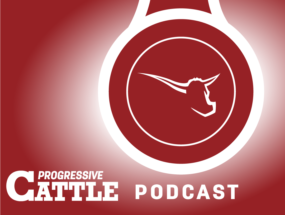However, methionine is more than just an amino acid. It’s one of the few amino acids that participates in a wide variety of metabolic pathways. It can serve as a precursor to other amino acids, like cysteine, another sulfur-containing amino acid.
Both of these amino acids can help protect proteins and cells from oxidation. It also participates in several other important metabolic pathways by donating its functional groups.
Methionine is a precursor to apolipoprotein synthesis and S-adenosyl methionine, through which it donates methyl groups for synthesis of choline, carnitine, creatine, folic acid, DNA, tRNA and phospholipids.
Protect proteins and amino acids in the rumen
If free amino acids are fed directly to beef cattle, the rumen microbes destroy them before they even leave the rumen. Because amino acids must be presented to the small intestine in required amounts in order for the animal to synthesize protein, the amino acid must be protected or modified to avoid rumen degradation.
The unique chemical structure of a methionine hydroxy analogue (HMTBa), a source of methionine, allows protection from some of the microbial degradation.
About 60 percent of the product is used in the rumen, where it improves microbial protein synthesis. The remaining approximately 40 percent of the product bypasses the rumen, where it becomes available for absorption and is used as a methionine source by the animal.
Optimize microbial activity
A sufficient supply of degradable protein is needed to sustain the production of rumen microbial protein. This rumen-made protein provides the bulk of metabolizable protein that flows to the small intestine, where it is absorbed and utilized by the animal.
When microbial efficiency is compromised, microbial protein yields suffer. Typically, microbial protein is already in the proper amino acid balance, having the proper amount and ratio of methionine and lysine. However, a reduction in microbial efficiency puts the quality and quantity of metabolizable protein at risk.
Studies have shown that supplementation with HMTBa for methionine activity consistently improved microbial protein synthesis by 10 to 20 percent, as well as microbial protein efficiency. The quality of protein that reaches the small intestine also improves when there is an improvement in microbial activity.
This results in an increase in the amount of available protein and an increase in milk production, milkfat yield and milk protein yield. What that means for the producer is cows wean heavier calves, maintain body condition scores and can even impact reproductive efficiency.
Supplementation is critical
Methionine is a limiting, essential amino acid not synthesized within the animal’s tissues. Therefore, it must be present in the diet or provided by the rumen microbes. However, it is difficult for growing beef cattle to get enough metabolizable, or bypass, methionine in their diets.
It is recognized that growing beef cattle can benefit from 5 to 10 grams per day of additional bypass methionine under a variety of feeding and management conditions, including high-forage range diets.
Because methionine plays several roles in an animal’s metabolism and it cannot produce this essential amino acid on its own, it is important to supplement the diet.
Supplemental methionine is especially important for late-gestation beef cows when they consume poor-quality, dormant native range forages and hay.
Adding a high-quality methionine supplement has been shown to support oxidative balance and improve feed efficiency, proper metabolic activity and lean growth, which all lead to improved performance, better reproduction and increased profits.
Supplementing rations with a methionine hydroxy analogue is an economical way to supply methionine and have a positive impact on the health and performance of the animal.
When feeding 15 grams, it can provide an average of 6 grams of bypass methionine at its published bypass rate of 40 percent, leading to an increase in microbial protein and efficiency, ADF and NDF digestibility, and contributing to protein and enzyme synthesis, immune system response and overall maintenance of health.
Adding a high-quality methionine supplement has been shown to improve performance in beef cows and heifers, including increased calf average daily gain, improved reproductive tract scores and reproductive efficiency. It also helps support oxidative balance.
It’s important to evaluate diets, identify nutrient requirements and learn how to balance for the right amount of metabolizable methionine. Not enough doesn’t maximize its potential, and too much wastes product and money. ![]()
Dennis Nuzback is the ruminant technical manager at Novus International Inc.

Dennis Nuzback
Ruminant Technical Manager
Novus International Inc.







